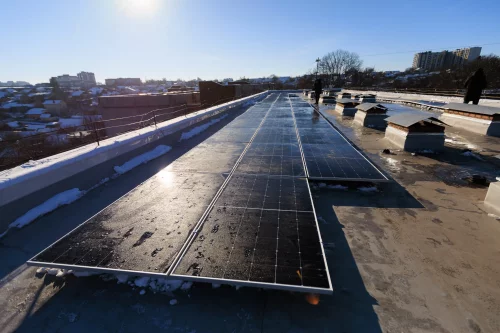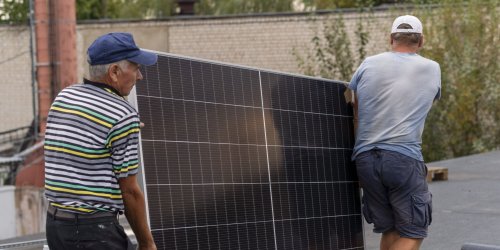A study by the international insurance company Allianz Trade showed that a repetition of the energy crisis in the Eurozone in the winter of 2023-2024 is unlikely.
This is due to a decrease in dependence on energy resources from Russia and a focus on alternative energy sources, reports Hydrogen Fuel News.
Researchers examined Central and Eastern Europe in more detail.
The article said that the transition to alternative energy sources has already been discussed in the Eurozone, focusing on economic rejuvenation and decarbonization, in particular, the transition to hydrogen.
The researchers emphasized that despite the long indebtedness of the corporate sector in the Eurozone and a number of economic problems, the repetition of the energy crisis is unlikely. After all, reducing dependence on Russian oil reduces the risk of a crisis.
It is noted that in 2022 the volume of total imports of oil and oil products increased to a record 86,000 tons. However, imports from Russia also fell from 47% (2021) to 40% and an average of 53% from 2017 to 2021. In addition, this indicator fell to 21% in the 1st quarter of 2023.
Allianz Trade emphasized significant changes in the energy dynamics of the Eurozone, especially in Central and Eastern Europe (CEE).
"Decreasing dependence on Russian oil in these regions indicates a strategic shift to alternative energy sources, such as hydrogen fuel, which is a key component of EU greening initiatives," the report said.
Earlier, EcoPolitic wrote, that a study by the International Energy Agency showed that in the EU in 2023 demand for electricity will fall by 3% to the lowest level in twenty years, in particular due to the energy crisis and the slowdown in economic growth
As EcoPolitic previously reported, in the European Union, carbon emissions from energy production in 2022 decrease by 2.8% and reached 2.4 billion tons.





